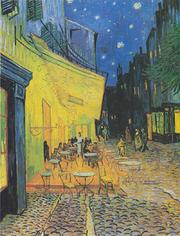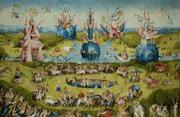Meaning Behind Hotel California: Analysis of the Eagles' Song Lyrics
BY K Shabi PUBLISHED 21 Nov 2021
No matter where you are in America, you won't have to listen to any classic rock radio station too long before "Hotel California" by the Eagles comes on. Like so many rock and roll songs, the meaning of "Hotel California" has been analyzed and interpreted almost as many times as it has been played since its release back in 1977. Despite its enduring popularity in American pop culture, the true meaning behind the Eagles' cryptic song lyrics remains a mystery. Is there a real place somewhere called Hotel California? What is the secret meaning of the song? A detailed interpretation and analysis of "Hotel California" reveals both a coming of age story and a cautionary tale hidden deep in its song lyrics.

Hotel California Meaning: A Satanic Song about Drugs or the Devil?
"Hotel California" was a huge commercial and critical success for the Eagles. The song reached the #1 spot on the Billboard Hot 100 and won the 1978 Grammy Award for Record of the Year. Like other cryptic classic rock hits including Led Zeppelin's "Stairway to Heaven" or "Paint it Black" by the Rolling Stones, critics have speculated wildly about the potential secret meaning hidden in its mysterious song lyrics. Some think that the song lyrics are meaningless and just inspired by the use of psychedelic drugs, while others believe that the song contains coded secret references to the Devil and Satanic worship. Don Henley, the Eagles' front man and a credited songwriter on the track, has spoken cryptically about the song's hidden meaning on multiple occasions. In a 2013 interview, Henley offered this simple interpretation of "Hotel California":
Analysis and Interpretation of the "Hotel California" Song Lyrics
On a simple level, "Hotel California" documents a person's rite of passage — the fundamental journey from innocence to experience, from childhood to adulthood, that we all eventually must embark upon. Indeed, the song's opening verse functions as a broad metaphor for the journey of life in general. Alone, a weary traveler heads down a dark deserted road, moving towards an unknown end. Will he ever reach his destination? Is there anything up ahead, or just more darkness? When he finally sees "a shimmering light" up ahead in the distance, the relief is so intense it is almost intoxicating, maybe clouding his judgment. Seemingly a reference to marijuana, the "warm smell of colitas" mentioned in the first verse speaks to the slightly woozy, psychedelic feeling he experiences as he finally closes in on this destination. Are his goals, aspirations and dreams really coming true?
Warm smell of colitas rising up through the air
Up ahead in the distance I saw a shimmering light
My head grew heavy and my sight grew dim
I had to stop for the night
Autobiographic and Personal Meaning Behind "Hotel California"
For Don Henley and the other members of the Eagles, "Hotel California" is a song packed with personal meaning, telling a story they could all definitely relate to and identify with. Like any rock band who finally hits it big on the radio, the Eagles were struggling hopefuls one day and then suddenly thrust into a decadent new rock star lifestyle seemingly overnight. Sung and narrated in first person perspective, the narrator of "Hotel California" could be Don Henley, another member of the Eagles, or really any rock star or high roller. When asked about the meaning of the song in a 2002 interview, Henley explained, "It's our interpretation of the high life in Los Angeles," adding finally, "which is something we knew a lot about."
"Hotel California" by the Eagles: The Hidden Meaning of the Song Explained
It's no coincidence that "Hotel California" is named after and takes place in the Golden State. California has held a special place in the heart of American culture since the mid nineteenth century. In some ways, California is where the idea of the American Dream really began. Starting with the Gold Rush of the 1840s, California was the warm, sunny destination that Americans dreamed of escaping to with the hope of finding gold and getting rich overnight. After all, the state motto is "Eureka! I have found it!" Surprisingly, the allure of California didn't end with the Gold Rush. With the rise of Hollywood and the Los Angeles entertainment industry in the early twentieth century, California was reinvented as the place where you dreamed you could escape to not only get rich, but famous too.
Such a lovely place, such a lovely face
Plenty of room at the Hotel California
Any time of year you can find it here…
Like the state it is named after, Hotel California is marketed as the perfect dream destination in the Eagles' song. "They're living it up at the Hotel California," the chorus goes. In some ways, the chorus functions as an advertising jingle that highlights all of the getaway's selling points. Like Manifest Destiny and the entire West Coast dream it represents, Hotel California is presented as an almost irresistible paradise where, regardless of the season, there is always "plenty of room" and everyone is welcome.
I heard the mission bell
And I was thinking to myself
"This could be Heaven or this could be Hell"
Then she lit up a candle
And she showed me the way
What's not to like? Even the people who work at the Hotel California are intoxicatingly attractive. A beautiful woman and a clear companion to the lady in the first verse of Led Zeppelin's "Stairway to Heaven," the concierge stands at the hotel's entrance dreamily with a candle, inviting the song's narrator to follow her inside. Suddenly, a church bell rings in the distance. Is that a divine warning or just a flash of conscience? Whatever it is, he brushes it off. There's no turning back at this point. He's all in.
"Hotel California" & the Dream of the Sixties: Behind the Song Lyrics
But is it all just a desert mirage, "a shimmering light," an illusion? Released in 1977, "Hotel California" is heavily influenced and perhaps even haunted by the Sixties, the era that preceded it. The youthful spirit of the Sixties is deeply rooted in Southern California, famous as the hippie hotspot during the Summer of Love. The Sixties were a turbulent but hopeful time of social change in the music industry and America at large. Across the nation, the Civil Rights Movement advanced a harmonious message of brotherly love, equality and integration. On an even more universal level, the Moon Landing of 1969 also seemed to suggest that anything was possible for humankind.
But by the 1970s, a dark smoggy cloud started to gather over Los Angeles. In some ways, the chaotic 1969 Woodstock Festival, with its hedonistic rumors and tales of drugs, sex and violence, symbolized the disappointing and gritty end to an era defined by idealism. As a song, "Hotel California" seems to lament the end of the Sixties and its simple message of peace, love and understanding.
He said, "We haven't had that spirit here since 1969."
And still those voices are calling from far away
Wake you up in the middle of the night just to hear them say
Welcome to the Hotel California
The end of the Sixties, a time characterized by so much hope and youthful naivete, weighs heavily on "Hotel California." This becomes clear in the second verse when the narrator, perhaps in an effort to ease his troubling mind, tries to order his favorite wine at the hotel bar and is met with a cryptic rebuff: "We haven't had that spirit here since 1969." The hopes and dreams of his youth have vanished. How should he console himself now? In interviews, Don Henley famously has made it clear that he is very aware that wine is not classified as a spirit, but rather used the word "spirit" intentionally in this song lyric to make a "sociopolitical statement." Definitely not referring to just liquor or alcohol, the word "spirit" here seems to refer to a matter of the soul.

The American Dream: An Analysis and Interpretation of "Hotel California"
While the Sixties may have symbolized a more hopeful time in America and in the music industry, the past in general seems to maintain an unshakable hold on the narrator of "Hotel California." He laments, "Some dance to remember, some dance to forget." Perhaps thinking back on his youth, a simpler and more hopeful time in his own life, he cannot sleep at night and is haunted by all kinds of spirits and phantom voices: "voices down the corridor" and "voices calling from far away." Does he have a guilty conscience?
She's got the Mercedes bends […]
Bring your alibis
Mirrors on the ceiling
Pink champagne on ice
By the end of "Hotel California," the hopeful dreams of the past are replaced by empty materialism, hedonism and apathy. As Don Henley explained, "It's basically a song about the dark underbelly of the American Dream." The song's narrator plays the part of the aging rock star who has sold out, so to speak, and cashed in his ideals and integrity in exchange for wealth, fame, power, airtime. Somewhere along the way in his journey to achieve his goals and realize his dreams, the once obvious line dividing right from wrong confusingly blurs away. Compromises are made. Crimes may occur and "alibis" may need to be established, but he has proved he is willing to do whatever it takes to maintain his position at the top. He has worked hard to get where he is, but has he proverbially sold his soul in the process?
This gradual decline occurs throughout "Hotel California" in different forms. The woman introduced in the first verse once seemed dreamlike and ethereal, but she also becomes tainted and "twisted" in her insatiable desire for more. She wears the finest designer jewelry, drives luxury cars and drinks the most expensive champagne. What concessions is she willing to make to maintain her status?
By the end of the song, the loveliness of the Hotel, a symbol of the American Dream itself, also starts to deteriorate and lose its appeal. With its "mirrors on the ceiling" and seductive amounts of drugs and alcohol always available, the Hotel transforms into an increasingly seedy, sleazy and sordid hall of mirrors designed to disorient you. Full of secret hidden passages, it starts to seem impossible to exit or find the right way out.
I had to find the passage back to the place I was before.
"Relax," said the night man, "We are programmed to receive.
You can check out any time you like but you can never leave!"
Interpretation of the Meaning of the "Hotel California" Song Lyrics
By the third and final verse of "Hotel California," the American Dream has turned into an inescapable nightmare: an all-encompassing prison, a terrifying dungeon. In true rock star fashion, at the end of the song the narrator seems to live full-time at the hotel. Though initially drawn in by its welcoming external facades, he grows accustomed to life on the inside of Hotel California and can't really imagine leaving its comfortable cocoon. There's always a party going on somewhere and, afterwards, someone else is always there to clean up the mess. As the night man confirms, leaving the hotel has never been a realistic option for anyone. Is spiritually "checking out" and resigning oneself to a luxurious but empty life of complacency and cynicism really the only path forward?
The True Meaning Behind "Hotel California" by the Eagles
What is the hidden meaning of the classic rock song "Hotel California" by the Eagles? The song ends on a mysterious note. Was it all just a dream? In the end, it's complicated and open for interpretation. It is easy to condemn all of the compromises and concessions that occur at the Hotel California. We all have our reasons. Is it a song about the pitfalls of the American Dream? Yes, but it's more than that. Wrestling with and working through complex moral dilemmas is a fundamental part of the journey of life for all of us. As Don Henley said, "Hotel California" is at its core a song about the journey from innocence to experience — that's all. That's life. Be careful what you wish for. What would you do if you found yourself in the same predicament? Seek meaning first, wherever you can find it.







